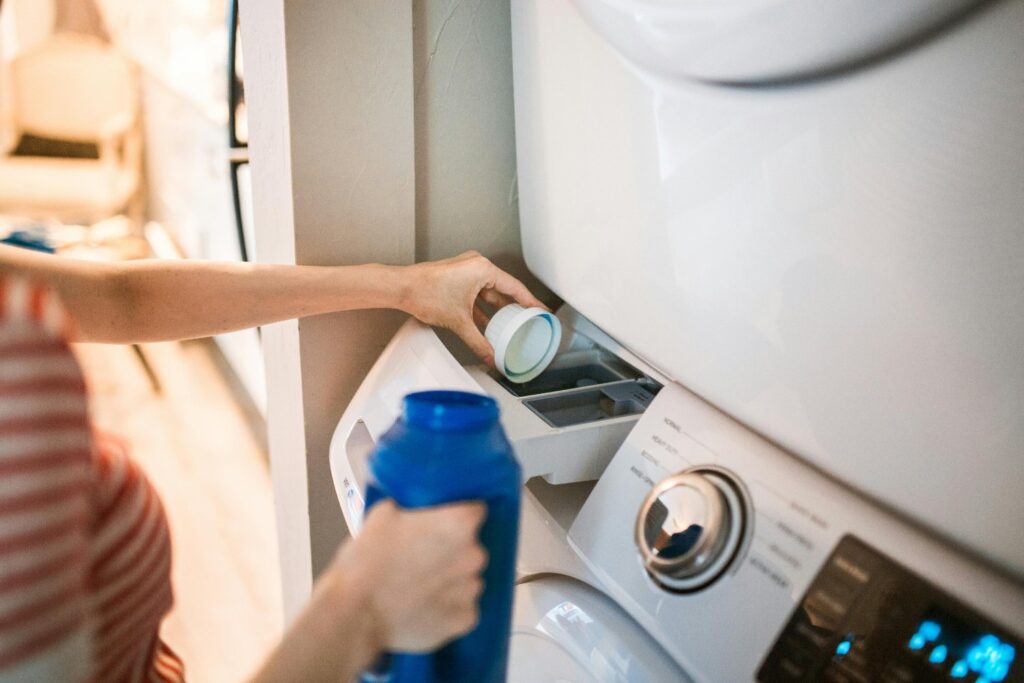Discover how washing machines revolutionize modern laundry care and household convenience
Washing machines have become one of the most indispensable household appliances, transforming the way people handle laundry. They save time, improve hygiene, and offer convenience through advanced cleaning technologies. Beyond simple washing, modern machines incorporate energy efficiency, water-saving mechanisms, and fabric-specific settings to ensure clothes are cleaned thoroughly while being protected. By reducing manual labor, washing machines have also reshaped daily routines, providing households with more freedom and efficiency. From compact models for small living spaces to large-capacity machines for families, the evolution of washing machines reflects a balance between technology, sustainability, and lifestyle needs. This article explores their features, benefits, and cultural significance in detail.

The Essential Role of Washing Machines in Everyday Life
Washing machines play a central role in modern households. Before their invention, laundry was a time-consuming and physically demanding task, often requiring hours of scrubbing and rinsing by hand. Today, washing machines have simplified this process, allowing individuals to clean clothes with minimal effort. This not only saves valuable time but also ensures that fabrics are cleaned more thoroughly and hygienically compared to manual washing.
Key Features of Modern Washing Machines
Modern washing machines come with a wide array of features designed to suit different needs. These include multiple wash cycles for various fabrics, temperature control, spin speed adjustment, and quick wash options. Some machines incorporate steam functions that help sanitize clothes and reduce wrinkles. Others have advanced sensors that automatically adjust water and detergent levels according to the load size. These features combine to enhance user convenience and improve cleaning performance.
Efficiency in Water and Energy Use
One of the most significant advancements in washing machine design is improved efficiency. High-efficiency (HE) models are designed to use less water and energy, making them environmentally friendly while lowering household utility costs. These machines optimize water consumption by tailoring the amount used to the specific load. Additionally, modern washing machines often carry energy certifications, demonstrating compliance with sustainability standards. Such innovations reflect the growing importance of environmentally conscious household appliances.
Different Types of Washing Machines
Washing machines come in various forms to accommodate different lifestyles and living spaces. Top-loading machines are traditional and widely used, offering ease of access. Front-loading machines, on the other hand, are known for higher energy and water efficiency, as well as gentle cleaning performance. Portable washing machines cater to small apartments or mobile living situations, while washer-dryer combinations provide a space-saving solution by incorporating two functions in one unit.
Fabric Care and Hygiene Benefits
Washing machines are not only about cleaning but also about protecting fabrics. Modern machines include delicate wash cycles that minimize wear on fine materials such as silk or wool. Sanitization functions help eliminate bacteria, allergens, and dust mites, which is especially beneficial for individuals with sensitive skin or allergies. This highlights the dual role of washing machines in both hygiene and garment preservation.
Technological Advancements in Washing Machines
The integration of technology has redefined what washing machines can offer. Many modern models feature digital displays, touch controls, and smart connectivity. Smart washing machines can be controlled via mobile apps, allowing users to start or monitor laundry remotely. Some machines even provide notifications when a cycle is complete or suggest the best settings based on fabric type. These innovations align with the broader trend of smart homes, where appliances contribute to greater convenience and efficiency.
Noise Reduction and User Comfort
Older washing machines were often noisy and disruptive, but modern machines are designed with noise-reduction technology. Inverter motors, vibration control, and insulated designs help create quieter operation. This makes it possible to run laundry cycles at night or in small living spaces without disturbance, enhancing overall comfort in daily life.
Design and Aesthetic Considerations
Washing machines are no longer purely functional but also part of household design. Sleek finishes, compact shapes, and built-in options allow machines to blend seamlessly into kitchens, laundry rooms, or even small apartments. Some machines are available in stylish colors or minimalist designs, reflecting the growing importance of aesthetics in home appliances.
Time-Saving Capabilities
Perhaps the most appreciated feature of washing machines is the time they save. What once took hours of manual effort can now be completed in under an hour with the push of a button. Quick wash settings and large-capacity drums enable households to complete laundry tasks efficiently, leaving more time for other daily activities. This shift has redefined household routines, offering more flexibility to individuals and families.
Cultural and Social Impact of Washing Machines
The washing machine has had a profound impact on modern society. It has reshaped family roles, reduced the labor burden traditionally placed on women, and contributed to greater gender equality by freeing up time for other activities. In many cultures, the presence of a washing machine signifies progress, convenience, and modernization. Its role extends beyond households to laundromats, which provide community spaces where people can access shared laundry facilities.
Longevity and Maintenance of Washing Machines
With proper care, washing machines can last many years. Regular maintenance, such as cleaning filters, avoiding overloading, and descaling to prevent buildup, ensures longer lifespans. Technological improvements have made machines more durable and reliable, minimizing breakdowns. Simple care routines not only preserve machine performance but also guarantee consistent cleaning results.
Future Trends in Washing Machines
The future of washing machines lies in further integration with smart home systems, greater sustainability, and AI-driven customization. Manufacturers are exploring models that can automatically detect fabric types and adjust cycles accordingly. Eco-friendly innovations such as water recycling systems and biodegradable detergent compatibility are also on the horizon. These developments aim to enhance convenience while reducing environmental impact.
Conclusion: Washing Machines as Essential Household Partners
Washing machines are more than just appliances—they are essential tools that support hygiene, efficiency, and comfort in modern life. Their evolution from simple mechanical devices to advanced, smart, and sustainable machines reflects technological progress and cultural change. By saving time, protecting fabrics, and promoting hygiene, washing machines continue to play a crucial role in shaping household routines and improving quality of life.






